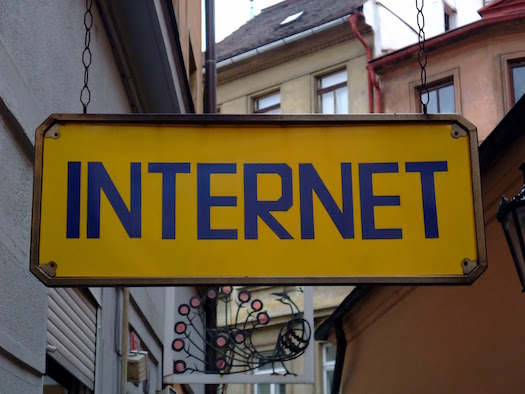Radio Tomorrow with James Cridland
In a piece in The Guardian over the weekend, former radio presenter turned podcaster Scroobius Pip says, of a meeting with US podcaster Joe Regan:
At the time, I had a radio show on Xfm, which went on to win two Sony awards. Joe asked: “Why do you work for someone else?” I said, “Well, they’re on FM.” He pointed out that most of my listeners were listening online … so I left.
It’s a throwaway comment in an article that is there to promote a new podcast, Distraction Pieces – but, like many throwaway comments, it’s one that’s deserving of a little more attention.
Because it’s wrong. 100% wrong.
The narrative surrounding radio is full of these kinds of frustrating smokescreen phrases.
“Young people don’t listen to the radio any more” – in fact, they’re listening in roughly the same numbers as they were ten years ago. They’re listening less long, but still listening.
“Video killed the radio star” – catchy song, but lazy Buggles headlines won’t disguise that actually radio is as popular, and sometimes more so, than TV.
And this one, for AM/FM stations that stream: “most of our listeners are listening online”. That, too, is false.
When I’m speaking – whether to radio stations behind closed doors, to conferences or to students – I usually ask for a show of hands for the popularity of online radio. Every single audience I’ve spoken at massively overestimates how popular internet streaming is. To all of them, it comes as a surprise how small the internet really is as a part of radio listening.
In most countries, internet accounts for less than 15% of total TSL for any AM/FM simulcast. That’s all.
Scroobius’s station, Xfm, had around 920,000 listeners in 2014, when he was on the air. I’ve gently pointed out in this column before that it’s quite hard to get total audience figures for podcasts, but in terms of total downloads, this article from 2013 is useful: This American Life, one of the biggest podcasts in the world, got around 800,000 downloads per episode; while on the radio it does 2.2m listeners. Xfm’s total audience is rather different to the audience for his particular show, but you get the point.
I might listen to lots of radio (and audio) over the internet, but then, as I am at pains to point out, I am not normal. And nor are most people who you work with in radio, either.
So, podcasting is a great thing. You can reach lots of people doing it. But if you’re on traditional radio – particularly a station as large as Xfm – it’s worthwhile remembering that there are many, many more people listening to you over the air than through the internet. Before you quit your job on-air, do some proper digging.
PS: Perhaps now’s the time to point out the audio version of my recent columns – you’ll find it on YouTube.
About The Author
 James Cridland is a radio futurologist: a writer, speaker and consultant on the effect that new platforms and technology are having on the radio business across the world.
James Cridland is a radio futurologist: a writer, speaker and consultant on the effect that new platforms and technology are having on the radio business across the world.
He writes for publications across the world, and runs media.info the worldwide media information website. He also runs a free weekly newsletter with news of radio’s future.
British by birth, James lives in Brisbane, QLD and is a fan of craft beer.


Disappointed to see reputable publishers happy to print such articles which are so unsupported by facts, figures or any credible research.
For the the truth about on line audio and live web radio listening facts - log onto www.iabuk.net/disciplines/online-audio
it is alive and well ......and growing quickly !
Hi Adam,
Thank you for your comment.
To be fair, James has posted number of articles quoting research from Rajar in his native UK. Also radioinfo regularly publishes radio listening figures from Commercial Radio Australia, the latest of which shows a 1.84% increase. http://www.radioitsalovething.com.au/RIALT/media/RIALT/PDF/ListeningSummary_2015-Infographic_1.pdf?ext=.pdf
Of course one could say that since these surveys are commissioned by bodies that are funded by traditional radio organisations, they are somewhat biased. Then again, the link you provided to the Internet Advertising Bureau UK, could be accused of the same thing.
As a reputable publisher we are happy to print the “truth” from any number of competing bodies that claim to hold it and let our readers decide.
radioinfo’s editorial position is that radio, along with other heritage media, will eventually migrate online. For the moment though, as James points out in his article, online listening is way overstated according to available figures in Australia and the UK.
In the end, however, it is all about content and not the platform on which it is delivered. And while music streaming has certainly replaced the iPod and CD stacker, and has undeniably made a dent with 10-24 year old music hounds, until the Pandoras and Spotifys can offer local news and personality, they will be hard pressed to compete head on with heritage radio. - Ed